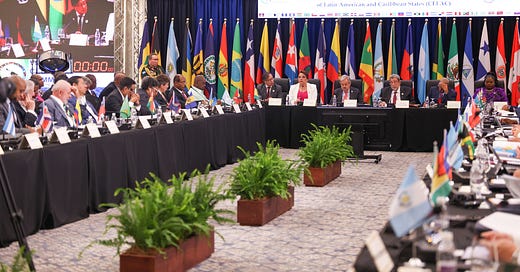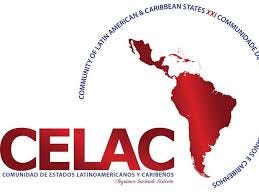CELAC calls for peace
The tenth anniversary of the proclamation of the region as a zone of peace
The VIII Summit of the Community of Latin American and Caribbean States (CELAC for its initials in Spanish) was opened on March 1, 2024, by an official ceremony commemorating the tenth anniversary of the declaration of the region as a zone of peace. The declaration was signed by representatives of all thirty-three member states of CELAC at its Second Summit held in Havana in 2014.
Four heads of state gave speeches during the commemorating ceremony: Miguel Díaz-Canel, President of Cuba; Xiomara Castro, President of Honduras, who assumed during the Summit the presidency pro tempore of CELAC for 2024; Gustavo Petro, President of Colombia, who will head CELAC in 2025; and Ralph Gonsalves, Prime Minister of Saint Vincent and the Grenadines, who is the host of the March 1, 2024 Summit, concluding the English-speaking island nation’s year as President pro tempore of CELAC.



